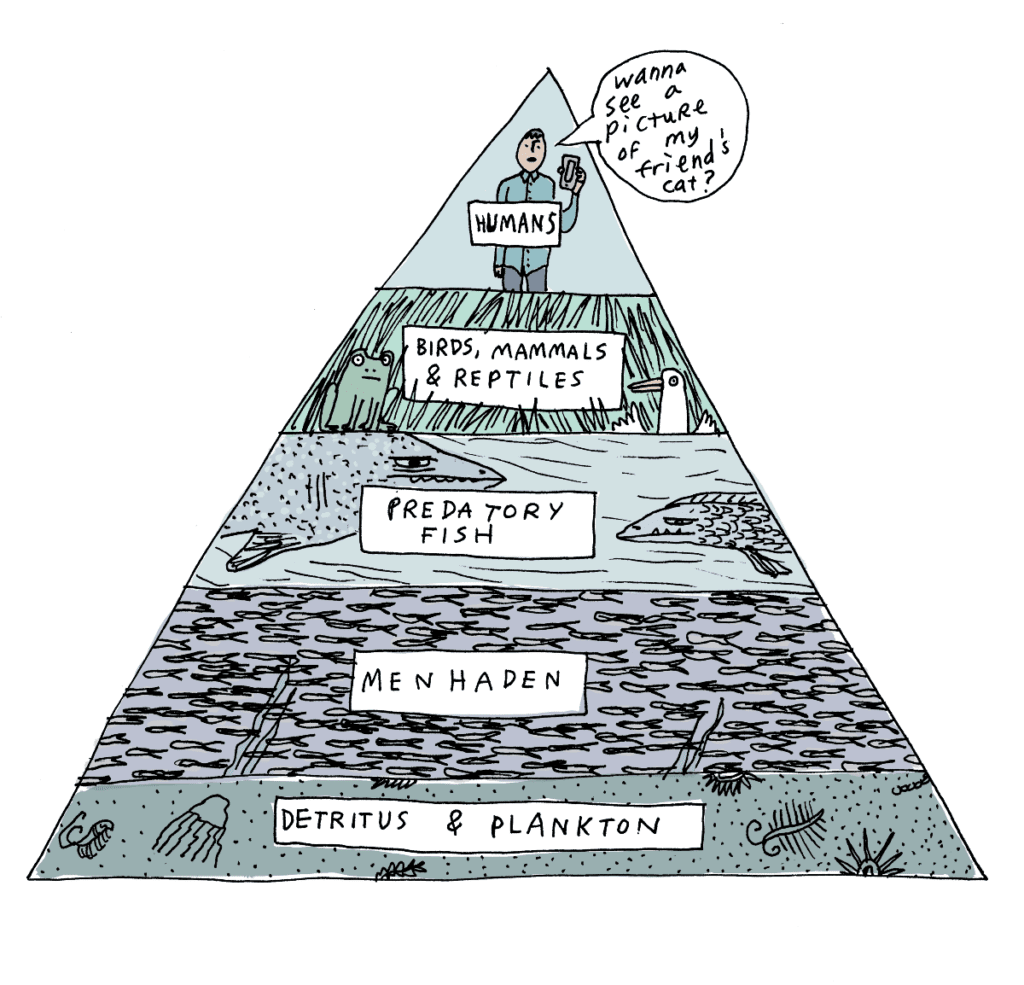Protecting Atlantic Menhaden
Atlantic menhaden are the unglamorous, small and oily forage fish that few people have even heard of.
Rich in marine fish oils, menhaden are a preferred source of food for striped bass, bluefish, tuna, osprey, whales, seabirds and a variety of marine mammals. There also quite useful for making fish oil supplements and as an ingredient in animal feeds. It’s been said that what menhaden do best is ‘get eaten’ and it’s unquestionably true.
For this reason, menhaden are what ecologists call a ‘keystone species’ —creatures which have a disproportionate affect on the resilience of the ecosystem of which they are a part.
And it’s not hard to see why.
 Source: “Remember the Menhaden” by Adia White / Illustrations by Hallie Bateman for Pacific Standard Magazine
Source: “Remember the Menhaden” by Adia White / Illustrations by Hallie Bateman for Pacific Standard Magazine
Feeding on tiny zooplankton, each adult menhaden filters an astonishing two million gallons of water per year. Their very existence makes our ocean cleaner and less susceptible to algal blooms which can reduce dissolved oxygen and contribute to dead zones—problems which are becoming more frequent as a result of coastal development, pollution and climate change. So, the more menhaden, the better.
At one time, their schools contained nearly unfathomable numbers and occasionally stretched a mind-bending 40 miles from end to end. Imagine that! More than a century of overfishing has reduced their population to their lowest level ever, reaching just 8 percent of the size it would be if we weren’t fishing for them.
In 2010, 460 million pounds of Atlantic menhaden were caught, making their US landings second only to Pollock from Alaska. The current management strategy precariously allows just 9 percent of the stock to reach the age where they have a chance to spawn.
After years of overseeing the decline of this fish, the Atlantic States Marine Fisheries Commission has acted with foresight and courage by significantly cutting the annual menhaden harvest. ASMFC’s amended plan is now designed to allow 15 percent of the stock to spawn–a change which should result in greater abundance of a wide variety of species in the not-too-distant future.
As fish farmers, we have the responsibility to make sure that the oceans are protected by advocating for these fish. We have worked hard to ensure that our processes don’t contribute to the depletion of species like the menhaden. This means that we custom calibrate the barramundi’s feed to minimize the use of wild feeder fish, and only source sustainably-harvested fishmeal when we do. Through this, and from the work of others, we are encouraged by decisions that rebuild abundance–especially for this most important, yet underappreciated, fish.